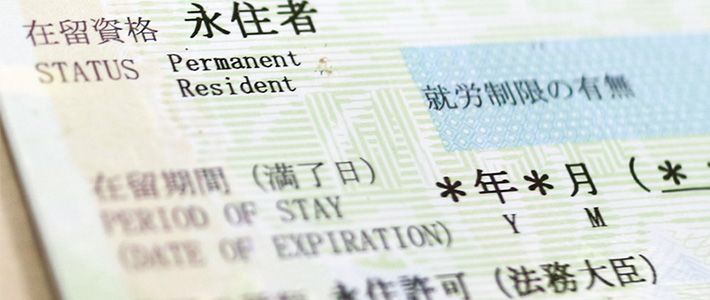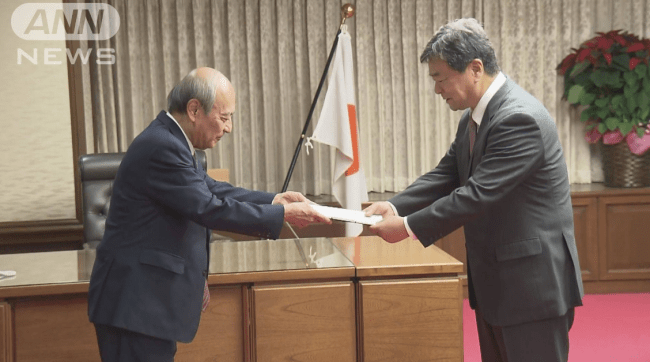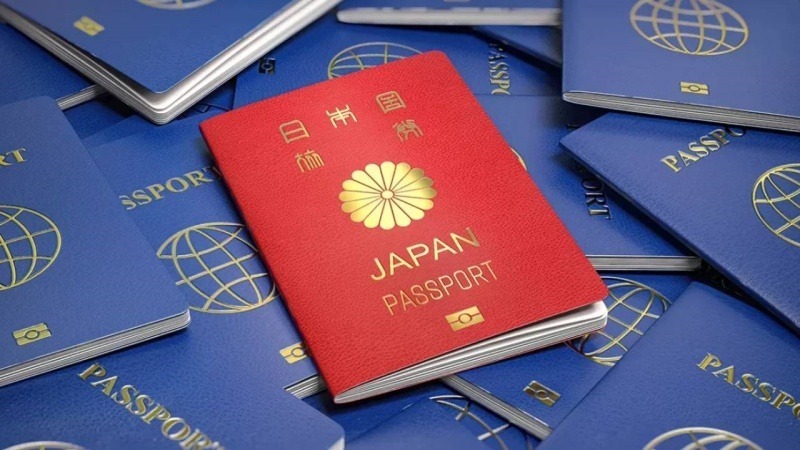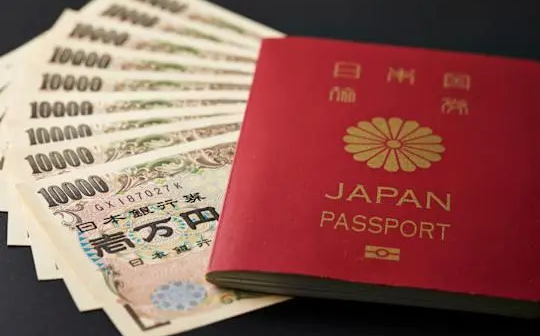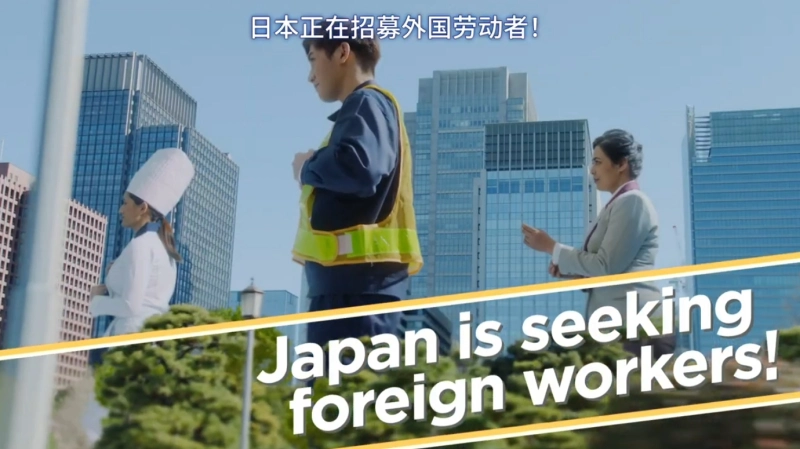According to the latest statistics from the Japan Immigration Services Agency, as of June of the fifth year of Reiwa era (2023), there were approximately 2.94 million foreigners residing in Japan, an increase of 148,645 from the previous year. The top three nationalities among them were Chinese, Vietnamese, and South Korean.
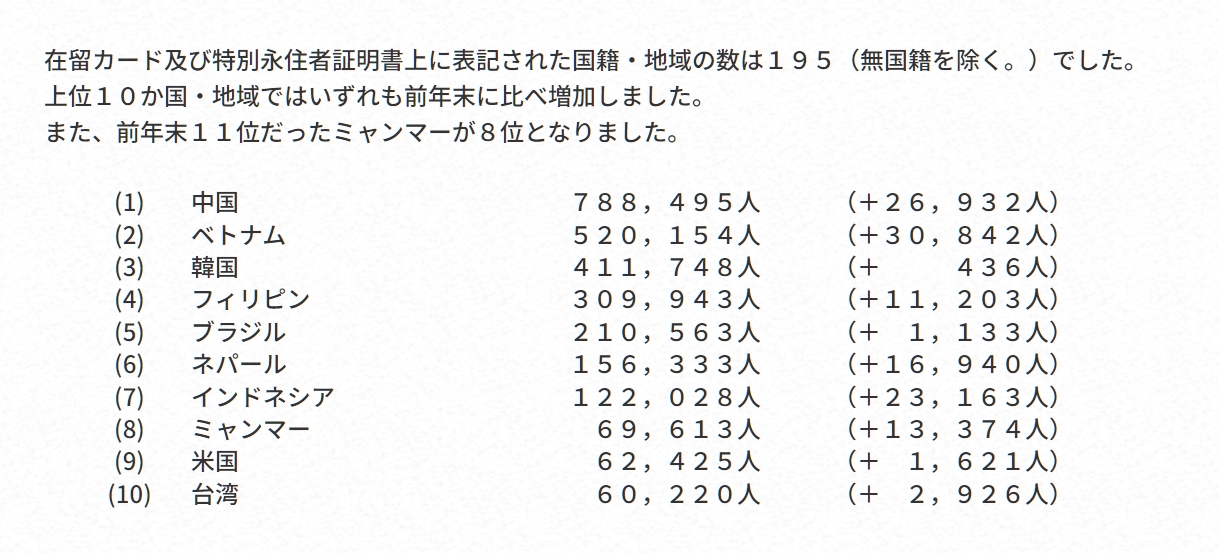
Many individuals are interested in the methods and conditions for immigrating to Japan, but there are often uncertainties. Although Japan offers as many as 34 types of residence statuses for foreigners, JapanRar has compiled eight mainstream methods and conditions for immigrating to Japan. You can review these to determine which method suits you best.
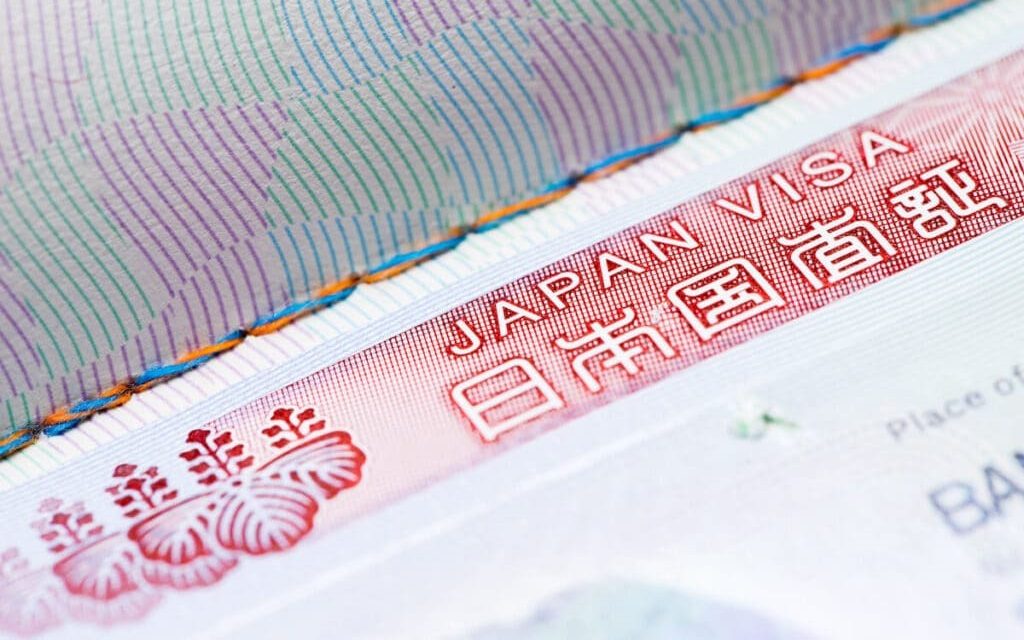
【1】Study Visa
If you are under 35 years old, we recommend applying for a study visa to Japan. You can start by studying Japanese at a language school, gain work experience to understand Japanese society and workplace culture, and then pursue higher education at a university, graduate school, or specialized school. Some Japanese universities offer English-taught programs like the G30 program.
Public universities in Japan generally have lower tuition fees compared to private universities and specialized schools. If possible, aim to enroll in a public university. The duration of courses at specialized schools is usually 2 years, with a few extending to 3 years.
Some universities in Japan also offer a research student (auditor) system. If your Japanese language skills are not sufficient or if you lack certain qualifications to enroll directly, you can apply as a research student first and then progress to regular student status. It's important to note that research students in Japan do not receive a diploma.
By studying in Japan and obtaining a local diploma, your chances of staying in Japan are significantly higher, especially if you aim to pursue a career as a highly skilled professional where a Japanese diploma can provide additional points.
【2】Work Visa
The work visa in Japan generally refers to the "Technical and Humanities Knowledge" visa. This visa allows you to bring your family to Japan and, under certain conditions, apply for naturalization and permanent residency.
The "Technical and Humanities Knowledge" visa typically requires at least a full-time college degree and preferably proficiency in Japanese. However, Japanese language proficiency is not mandatory for certain professions like skilled chefs in Chinese cuisine or highly skilled IT professionals, who can still apply for the "Technical and Humanities Knowledge" visa even without Japanese language skills.
Visas such as intra-company transferee, skilled labor, and caregiving visas are similar to the "Technical and Humanities Knowledge" visa and also allow family members to accompany you to Japan. Meeting certain conditions allows you to apply for naturalization and permanent residency.
While holding a work visa, do not forget to fulfill obligations such as paying national insurance, welfare pension, and various taxes. The Japanese government's scrutiny for permanent residency and naturalization is becoming stricter, so failing to fulfill financial obligations from past years during the application process could lead to complications.
【3】Labor Visa
Labor visas include skills training visas and specific skills No. 1 and No. 2 visas. These visas are essentially for labor export to Japan, mainly involving labor operations such as agriculture, factories, fisheries, etc.
Skills training and specific skills No. 1 visas cannot be renewed. Upon expiration, you must return to your home country and generally are not allowed to bring family members.
After completing five years under specific skills No. 1 and passing the relevant exams, you can apply for specific skills No. 2. Specific skills No. 2 visa allows unlimited renewals and allows you to bring family members. You can apply for residency once you meet the required years.
【4】Business Management Visa
The business management visa is a type of visa provided by the Japanese government to attract foreigners to establish and manage companies in Japan.
This visa is suitable for individuals with entrepreneurial or managerial experience in their home country, or for those who are older, have limited Japanese language skills, and cannot find good jobs. From the day you obtain the visa, you can bring your family to Japan and, under certain conditions, apply for naturalization and permanent residency.
The business management visa for Japan requires a capital of 5 million Japanese yen, a fixed office location, and a feasible business plan. The advantages of this visa are low investment thresholds and initial expenditure, a wide range of business operations with freely available funds, and a favorable business environment with well-established laws and mature systems.
However, it's important to note that maintaining the business management visa incurs annual costs, and initially, it's typically a one-year visa. The Immigration Bureau of Japan will renew your visa based on your company's operational status. Many people continue to hold multiple one-year visas, which can significantly impact your application for residency. Therefore, friends considering this path should conduct a thorough risk assessment beforehand.
【5】Family Stay Visa
The target of the family stay visa is spouses and minor children of foreigners working in Japan (non-Japanese or permanent residents).
The family stay visa requires being identified as a dependent, with restricted activities and work, cannot work, and the maximum weekly work hours are 28 hours.
Holders of the family stay visa enjoy all social welfare benefits in Japan (medical, childcare, education, etc.).
【6】Spouse Visa
The main difference between the spouse visa and the family stay visa is that the spouse visa applies to spouses of Japanese nationals or permanent residents.
The spouse visa has no activity restrictions in Japan, allows work and part-time work, and enjoys all social welfare benefits in Japan (medical, childcare, education, etc.).
【7】Highly Skilled Professional Visa
The target of the highly skilled professional visa is outstanding foreigners through Japan's "highly skilled professional points-based system," detailed criteria can be found in the latest 2024 Japanese highly skilled professional policy.
Compared to work visas, the highly skilled professional visa receives greater benefits, such as faster permanent residency acquisition, the ability to bring parents to Japan, etc. Holding a highly skilled professional visa with a score of over 70 points allows permanent residency application after 3 years; holding a highly skilled professional visa with a score of over 80 points allows permanent residency application after 1 year.
Holding "Highly Skilled Professional No. 1 Visa" for more than 3 years in Japan allows application for "Highly Skilled Professional No. 2 Visa," with the status of stay being "indefinite".
【8】Future Creation Talent Visa
The Future Creation Talent Visa is the latest policy introduced by the Japanese government in April 2023, targeting graduates from the top 100 universities in the world ranking.
The Future Creation Talent Visa requires applicants to have graduated within 5 years, and grants a maximum 2-year visa, during which they can work or prepare for entrepreneurship.
This visa allows bringing family members to Japan for living.
